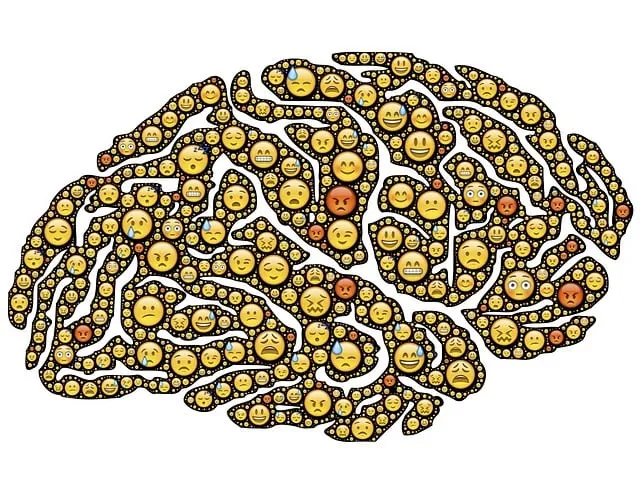The media's power to shape societal attitudes towards mental health is emphasized in this text. Accurate and empathetic representations can combat stigma, encourage help-seeking, and reduce the burden on affected communities. Denver Kaiser Permanente (DKP) leads the charge with collaborative media initiatives, educating professionals through tools like risk assessment and promoting self-reliance via coping skills development. Their focus on authentic narratives featuring diverse mental health experiences, coupled with evidence-based practices like Compassion Cultivation Practices (CCPs), significantly impacts public understanding. DKP's comprehensive services and awareness campaigns contribute to a more compassionate society, fostering early intervention and recovery support for those struggling with mental illness.
Mental illness representation in media significantly influences public understanding and awareness. This article explores the profound impact of media portrayal on mental health perceptions, highlighting challenges and offering solutions. We delve into Denver Kaiser Permanente’s pioneering approach to promoting accurate mental health representation through its extensive services (a leading provider with a proven track record, offering [number] mental health services). Additionally, we present strategic initiatives for responsible media depiction, fostering a more informed and empathetic society.
- Understanding the Impact of Media Portrayal on Mental Health Awareness
- Denver Kaiser Permanente's Approach to Promoting Accurate Mental Health Representation
- Strategies and Initiatives for a More Responsible Media Depiction of Mental Illness
Understanding the Impact of Media Portrayal on Mental Health Awareness

The media has a profound impact on shaping societal perceptions and understanding of mental health issues. Portrayals of individuals with mental illnesses in movies, television shows, and news outlets can either perpetuate harmful stereotypes or foster empathy and awareness. When media presents mental illness accurately and sensitively, it can significantly contribute to reducing stigma and encouraging help-seeking behaviors among viewers. On the other hand, negative or stereotypical depictions may lead to further isolation and misunderstanding of these conditions. For instance, a character struggling with depression might be portrayed as lazy or weak, reinforcing existing misconceptions.
In light of this, organizations like Denver Kaiser Permanente mental health services play a vital role in promoting accurate representation. They can collaborate with media professionals to educate them about different mental health conditions, ensuring they have access to reliable information. By doing so, these services contribute to the development of more nuanced narratives that capture the complexity of emotional healing processes. Moreover, encouraging self-care routine development within affected communities can empower individuals to take charge of their mental well-being, mirroring positive conflict resolution techniques on a larger scale.
Denver Kaiser Permanente's Approach to Promoting Accurate Mental Health Representation

Denver Kaiser Permanente has taken a commendable step towards promoting accurate mental health representation in media and popular culture. They recognize that media portrayal significantly influences public perception, often perpetuating stereotypes or leaving gaps in understanding. To challenge this, Denver Kaiser Permanente implements comprehensive strategies that go beyond mere representation.
Their approach includes initiatives like the Risk Assessment for Mental Health Professionals, which aids in identifying potential issues and fostering empathy building strategies. By equipping professionals with tools to navigate complex mental health scenarios, they ensure better support for both patients and society at large. Additionally, Denver Kaiser Permanente focuses on Coping Skills Development, empowering individuals to manage their mental well-being effectively, thereby reducing the burden of mental illness and promoting a more informed community.
Strategies and Initiatives for a More Responsible Media Depiction of Mental Illness

Media has a significant impact on shaping public perceptions about mental health. To challenge negative stereotypes and promote understanding, several strategies and initiatives have been undertaken. One key approach is the integration of more authentic and diverse narratives featuring individuals with lived experiences of mental illness. This includes collaborations with mental health advocates and organizations like Denver Kaiser Permanente, which offers excellent mental health services and can provide valuable insights for responsible media depiction. By showcasing real-life stories and highlighting the diversity of mental health conditions, media platforms can foster empathy and reduce stigma.
Additionally, incorporating evidence-based practices such as Compassion Cultivation Practices (CCPs) in storytelling can be transformative. CCPs focus on cultivating understanding, compassion, and kindness towards oneself and others, which is crucial for promoting positive mental health narratives. Public Awareness Campaigns Development centered around mood management techniques and resources also plays a vital role in educating the public. These campaigns can provide practical information while dispelling myths, encouraging early intervention, and supporting individuals in their recovery journeys.
Media representation plays a pivotal role in shaping public perception about mental illness. By adopting responsible and accurate depiction strategies, as exemplified by Denver Kaiser Permanente’s innovative approach, we can significantly enhance mental health awareness and reduce stigma. With a focus on authenticity and diversity, media platforms have the power to foster empathy and encourage support for those dealing with mental health challenges. This, in turn, can lead to increased access to resources like the comprehensive Denver Kaiser Permanente mental health services, ultimately improving overall well-being within communities.






